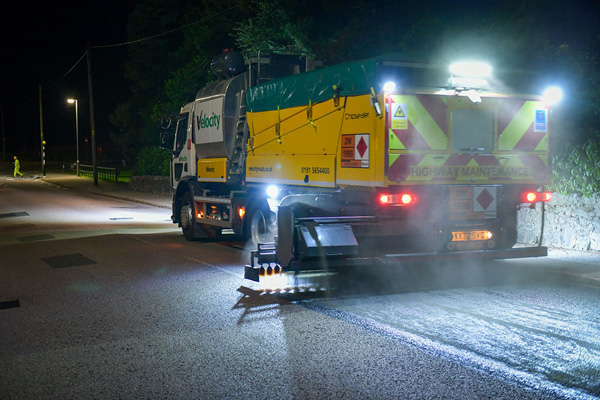Velocity and Aberdeenshire Council have used the Rhinophalt preservative treatment for the first time in Scotland.
Rhinophalt is a product containing Gilsonite, a naturally occurring bitumen, that aims to lock in the current condition of the road.
It penetrates the road surface to depths of 30mm, setting hard in microcracks and air voids to prevent the ingress of water and oxidisation of the carriageway.

Following a pre-sweep, the product is sprayed onto the road surface with one pass of the machine.
As the profile of the road is maintained there is no need to raise ironworks, kerb heights or thresholds, while rapid curing of the product means that line markings can be applied in the same closure window
The treatment was carried out under road closures at night mix of residential, rural and A-roads across six sites in Central and South Aberdeenshire.
Philip McKay, the council’s head of roads and infrastructure services, said: ‘With such a large, rural roads network which is subject to significant vehicle weight and volume, it is vital that we do everything we can to maintain strong road surfaces across the region.
‘There is absolutely no doubt that prevention is better than cure and we are eager to see the results of the Rhinophalt treatment trial.’

Gavin Blogg, Velocity’s business development manager, added: ‘It has been a pleasure working with the council in Aberdeenshire, demonstrating the benefits of preservation in towards their asset management strategy.
‘Local authorities throughout the UK are increasingly seeing the benefit of asphalt preservation, protecting their network and avoiding costly, disruptive interventions further down the line.’





